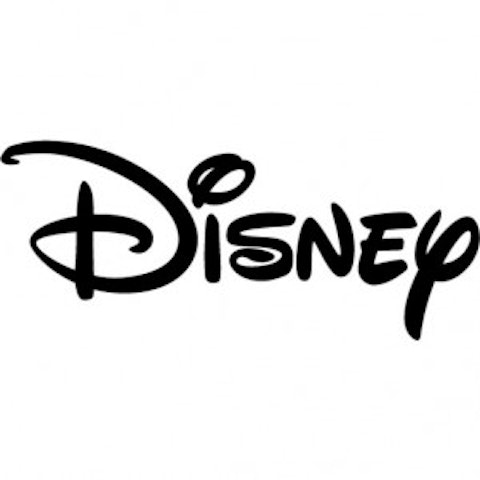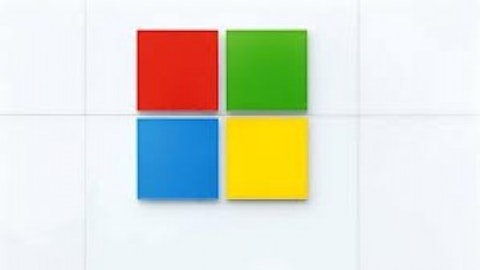
The flop and the problem
It’s also very disappointing considering that Comcast Corporation (NASDAQ:CMCSA)‘s “Despicable Me 2” has taken in well over $270 million as of July 21. Not only that, but it supposedly cost only $76 million to produce. These budget numbers don’t include marketing, but they still give us an idea of how relatively expensive they were. Comcast Corporation (NASDAQ:CMCSA) owns Universal, the distributor for the Despicable Me cartoon sequel. This is doubly embarrassing for Disney since, based on numbers reported for previous Pixar projects, I estimate that the company’s latest summer offering, “Monsters University,” cost more to make.
Why can’t The Walt Disney Company (NYSE:DIS) lower the budgets for its films? I don’t like blaming executives for flops for a simple reason: the movie business cannot be easily controlled. Even the best film could flop. The trick is to keep the costs in check.
I recall reading about The Walt Disney Company (NYSE:DIS)’s reticence over the escalating cost of Ranger. This article from last year at The Hollywood Reporter explains what was happening during the troubled production. Disney had a chance to shut this mistake down, but it chose to proceed, probably figuring it had already spent too much capital to write off.
CEO Robert Iger needs to be held accountable for the budget, not so much for the performance of the film. There’s no question that The Walt Disney Company (NYSE:DIS) is in a big budget business, but it has to make sure that the costs correspond to the strength of the material.
The Walt Disney Company (NYSE:DIS) might lose $150 million on the project. I’m not arguing that investors should dump their shares — I myself initiated a new position recently, albeit a small one. I have confidence that The Walt Disney Company (NYSE:DIS)’s various properties will do well over time, and I don’t believe this one loss is going to sink the company.
However, no shareholder should be satisfied with this result. For Disney to grow the income of its studio division, it must take into account risk, which means taking into account budgets. Sometimes you shouldn’t invest in an idea even if talent wants you to.
Besides the “Despicable Me” sequel, I have to bring up another movie that seems to turn the concept of you-always-need-a-lot-of-money-in-Hollywood-to-make-a-splash on its head. Sony Corporation (ADR) (NYSE:SNE)‘s Adam Sandler cartoon “Hotel Transylvania” from last year made $346 million worldwide on a reasonable budget of $85 million. Another cartoon, but the lesson stands: you can trim the budget and do well.
Investing in Hollywood
Taking Sony Corporation (ADR) (NYSE:SNE) first, I don’t like the company’s exposure to the video game console business, which I believe is in a challenging transitionary period, and I’m not particularly attracted to its general electronics business. Its movie business interests me a little, but not as much as it would if it were spun off. There has been talk of the value of separating the company, but until I see something concrete, I wouldn’t consider Sony Corporation (ADR) (NYSE:SNE), even though its stock has, admittedly, been up so far this year — shares are near the 52-week high.
Comcast Corporation (NASDAQ:CMCSA) is definitely worth more attention, but it too has concerns. While I believe its NBC Universal asset is a great generator of valuable content, I worry about its exposure to the cable sector.
Going forward, I wonder how it will fight back against companies like Netflix, Inc. (NASDAQ:NFLX) and that whole cut-the-cord movement (NBC Universal does own 30% of Hulu, so Comcast may have some theoretical hedge against such disruptions, although the cable provider isn’t allowed to involve itself in the operation because of regulatory restrictions). Comcast stock is likewise near its highs, and while I believe it will be able to promote a nice synergy between NBC Universal and its cable platform, I’d rather go with Disney.
I own Disney, as many Fools do. Disney has the best brand equity overall. Comcast might own Universal Studios, and it might be a strong competitor to the Magic Kingdom, but when you’re talking premium beloved properties that stand the test of time, you’re talking the Mouse. Disney doesn’t own a video game console being kicked in the pants by apps, and it doesn’t have to worry about cable subscribers. Instead, Disney can simply sit back and watch as Marvel, Pixar and Lucasfilm work their magic and produce content that has a better-than-average chance of being accepted by the marketplace, Ranger notwithstanding. Like the others, Disney isn’t far from its own 52-week high, but to me, this company stands the best chance of outperforming because of its theme parks, broadcast network ABC, ESPN cable channels, and upcoming franchise sequels. And while we’re comparing and contrasting with Comcast, notice how Disney has the goods over that company with properties like the very popular ESPN and Disney Channel.
And I see opportunity at Disney’s studio division. According to the recent second-quarter earnings report, which you can find here, one will see that, for the six-month period, the studio segment brought in $352 million of profit from $2.9 billion of revenue. I see margin opportunity in that number, and I see the studio segment being a bigger driver of overall profit for the company than it currently is, not just in the indirect sense of a movie benefiting other segments of the company (i.e., a Marvel film leading to a ride in the parks), but in direct, bottom-line fashion. That makes the development of blockbuster movies at a discount (read: pay talent participants less — see how Sony altered Adam Sandler’s deal with his latest summer flick) a priority.
Conclusion
Going back to Disney’s recent flop, I’ll point out that this isn’t a make-or-break situation. But I hope that the board, as well as the CEO, are carefully looking at what happened. This failure should be dissected from all angles and should not be allowed to happen again. Disney is not a stranger to box office failures. While the company has incredible franchises locked away with Lucasfilm and Marvel, I don’t believe The Walt Disney Company (NYSE:DIS) portion of the branding scheme should be allowed to fly on autopilot. Take a lesson or two from Pixar: it is possible to keep a streak going for a long time. Taking risks is good, but not on a budget that exceeds $200 million.
Steven Mallas owns shares of Walt Disney. The Motley Fool recommends Walt Disney. The Motley Fool owns shares of Walt Disney. Steven is a member of The Motley Fool Blog Network — entries represent the personal opinion of the blogger and are not formally edited.
The article Disney Needs Discipline: Movie Budgets Should Be Lower originally appeared on Fool.com is written by Steven Mallas.
Copyright © 1995 – 2013 The Motley Fool, LLC. All rights reserved. The Motley Fool has a disclosure policy.





